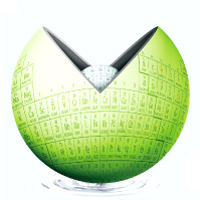
Published for geochemistry community from Geochemical Society of Japan.
Geochemistry and tectonic environment of the Dagzhuka ophiolite in the Yarlung-Zangbo suture zone, Tibet
Geochemical Journal, Vol. 37, No. 3, P. 311-324, 2003
ABSTRACT
The Cretaceous Dagzhuka ophiolite lies in the middle segment of the Yarlung-Zangbo suture zone, Tibet, and has a well-preserved ophiolitic section including a mantle sequence, cumulate complex, diabase dyke swarm and basaltic lavas. Compared to the primitive mantle, tectonized peridotites in the Dagzhuka ophiolite are depleted in Al, Ca, Ti and high field strength elements, but relatively enriched in large ion lithophile elements (Rb, Ba, Th). They have U-shaped, chondrite-normalized REE patterns suggesting an early stage of depletion by partial melting, followed by enrichment from slab-derived fluids. These features support a model in which the mantle peridotites at Dagzhuka formed in a forearc setting. The diabases and basalts are low-K tholeiites depleted in LREE, with compositions similar to N-MORB. However, these rocks are strongly depleted in Nb and Ta but enriched in Th and Rb, features characteristic of island arc lavas. Thus, the Dagzhuka ophiolite is believed to have formed in a supra-subduction zone environment, possibly a fore-arc basin.- Published : 2003-06-20
- Released on J-STAGE : -
- Received : 2001/01/17
- Accepted : 2002/12/20
- DOI : https://doi.org/10.2343/geochemj.37.311
- J-STAGE URL : https://www.jstage.jst.go.jp/article/geochemj1966/37/3/37_3_311/_article/-char/ja
- J-Online ISSN: 1880-5973
- Print ISSN : 0016-7002
- ISSN-L : 0016-7002
All Issues
- Vol.59, 2025
- Vol.58, 2024
- Vol.57, 2023
- Vol.56, 2022
- Vol.55, 2021
- Vol.54, 2020
- Vol.53, 2019
- Vol.52, 2018
- Vol.51, 2017
- Vol.50, 2016
- Vol.49, 2015
- Vol.48, 2014
- Vol.47, 2013
- Vol.46, 2012
- Vol.45, 2011
- Vol.44, 2010
- Vol.43, 2009
- Vol.42, 2008
- Vol.41, 2007
- Vol.40, 2006
- Vol.39, 2005
- Vol.38, 2004
- Vol.37, 2003
- Vol.36, 2002
- Vol.35, 2001
- Vol.34, 2000
- Vol.33, 1999
- Vol.32, 1998
- Vol.31, 1997
- Vol.30, 1996
- Vol.29, 1995
- Vol.28, 1994
- Vol.27, 1993
- Vol.26, 1992
- Vol.25, 1991
- Vol.24, 1990
- Vol.23, 1989
- Vol.22, 1988
- Vol.21, 1987
- Vol.20, 1986
- Vol.19, 1985-1986
- Vol.18, 1984
- Vol.17, 1983
- Vol.16, 1982
- Vol.15, 1981
- Vol.14, 1980
- Vol.13, 1979
- Vol.12, 1978
- Vol.11, 1977
- Vol.10, 1976
- Vol.9, 1975
- Vol.8, 1974
- Vol.7, 1973
- Vol.6, 1972-1973
- Vol.5, 1971
- Vol.4, 1970-1971
- Vol.3, 1969-1970
- Vol.2, 1968
- Vol.1, 1966-1967
Current Issue:
Stats:
Impact Factor: 1.6 (2024)
Submission to final decision: 9.6 weeks (2022)




